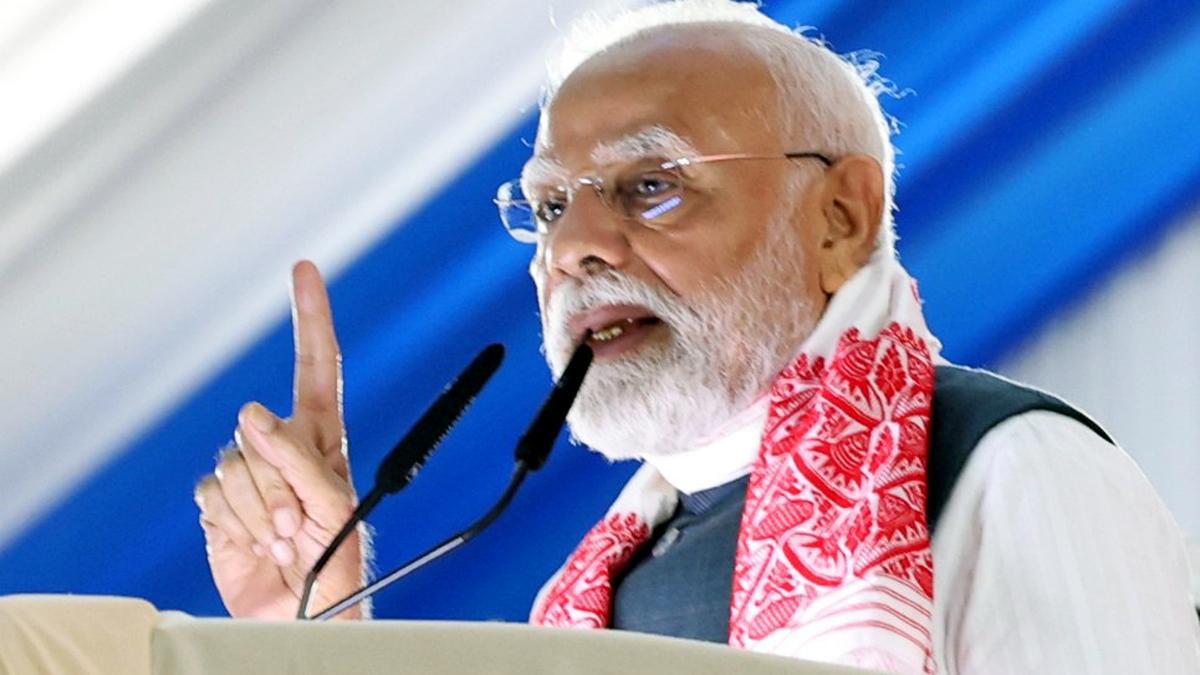Summary
At 75, Prime Minister Narendra Modis enduring leadership traits of nation-building, moral authority, and vision will shape history.
Source: thehindu.com

AI News Q&A (Free Content)
Q1: What are some enduring leadership traits of Prime Minister Narendra Modi that contribute to his vision of nation-building?
A1: Prime Minister Narendra Modi is known for his vision, decisiveness, and ability to connect with the masses. His leadership style focuses on nation-building through initiatives like 'Make in India' and 'Digital India', which aim to boost India's economy and technological prowess. Modi's leadership is also characterized by a strong moral authority, which is reflected in his campaigns against corruption and efforts to promote transparency in governance.
Q2: How does Narendra Modi's leadership style reflect the principles of the Rashtriya Swayamsevak Sangh (RSS)?
A2: Narendra Modi's leadership style is influenced by the principles of the Rashtriya Swayamsevak Sangh (RSS), which emphasizes Hindutva and the promotion of Indian cultural values. The RSS, with which Modi has been associated, focuses on character building and national unity. Modi's policies often reflect these values, focusing on promoting a sense of national pride and cultural identity.
Q3: In what ways has Narendra Modi's leadership impacted India's political landscape?
A3: Narendra Modi's leadership has significantly impacted India's political landscape by consolidating the Bharatiya Janata Party's (BJP) position as a dominant force. His focus on economic reforms, infrastructure development, and foreign policy initiatives has reshaped India's global presence. Domestically, his emphasis on 'sabka saath, sabka vikas' (together with all, development for all) aims to unify diverse communities under a shared national vision.
Q4: What role does moral authority play in Narendra Modi's leadership, and how is it perceived in India?
A4: Moral authority in Modi's leadership is demonstrated through his public stance against corruption and his efforts to promote ethical governance. This aspect of his leadership is largely perceived positively in India, as many citizens view him as a leader committed to clean governance and national integrity. However, critics argue that such authority must be balanced with inclusive policies that consider all segments of society.
Q5: How has Narendra Modi's leadership influenced India's economic policies?
A5: Modi's leadership has driven significant economic reforms such as the implementation of the Goods and Services Tax (GST) and efforts to improve ease of doing business in India. His initiatives aim to attract foreign investment and boost manufacturing, with a focus on self-reliance through the 'Atmanirbhar Bharat' campaign. These policies have led to economic growth, though challenges remain in addressing inequality and unemployment.
Q6: What is the significance of Modi's 'Make in India' initiative in the context of his leadership vision?
A6: The 'Make in India' initiative is a cornerstone of Modi's leadership vision, aimed at transforming India into a global manufacturing hub. This initiative seeks to create jobs, enhance skill development, and increase India's competitiveness in the global market. It reflects Modi's broader vision of economic self-reliance and technological advancement as drivers of national strength.
Q7: How has Narendra Modi's leadership approach been influenced by global political trends?
A7: Modi's leadership approach reflects global political trends such as the rise of nationalism and strong leadership figures. His focus on national pride, economic sovereignty, and a distinct cultural identity aligns with similar movements worldwide. Modi's international engagements, including strategic partnerships and participation in global forums, underscore his approach to positioning India as a key player on the world stage.
References:
- Cult of personality
- Right-wing politics
- Rashtriya Swayamsevak Sangh





